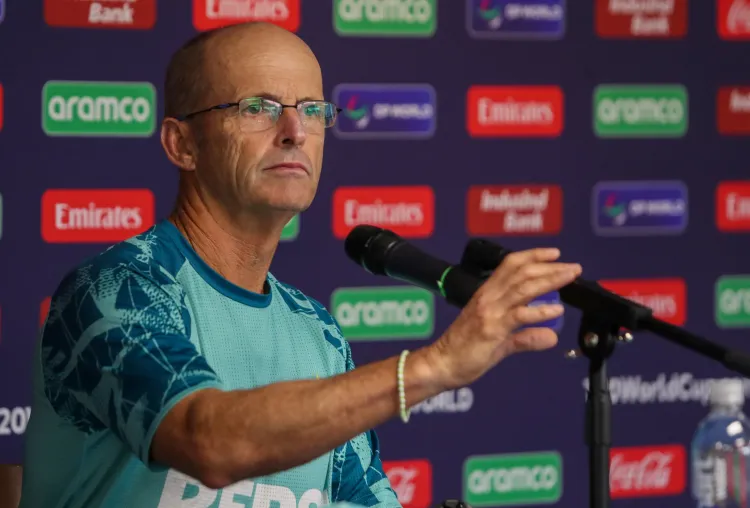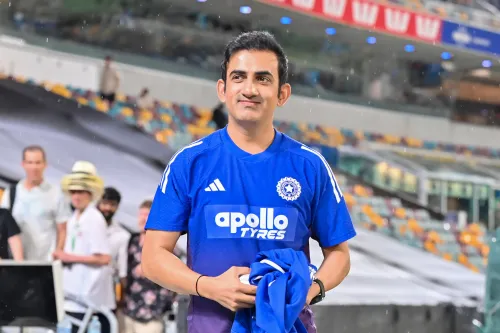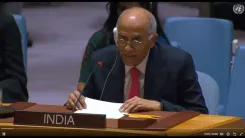Did Gary Kirsten Realize Too Late His Impact as Pakistan Coach Would Be Minimal?

Synopsis
Key Takeaways
- Kirsten had a brief tenure as Pakistan’s white-ball coach.
- He realized his influence was limited early on.
- External pressures affect team dynamics significantly.
- He values a supportive coaching environment for success.
- Kirsten admires the talent of Pakistan's players.
New Delhi, June 15 (NationPress) Former South African cricketer Gary Kirsten, renowned for leading India to their 2011 ODI World Cup victory, disclosed that he quickly realized his limited ability to influence the team as Pakistan’s white-ball coach, prompting him to resign.
Kirsten was appointed as Pakistan’s white-ball coach in April 2024, coinciding with Jason Gillespie taking the helm of the Test side. However, after only six months, Kirsten stepped down from his position. Shortly after, Gillespie, who had coached Pakistan during their ODI series victory in Australia, also left the coaching staff.
"It was a challenging few months. I realized soon enough that I wouldn’t have much influence. Once I was removed from selection duties and instructed to lead a team without the ability to shape it, it became incredibly challenging to have any positive impact on the players," Kirsten shared on the Wisden Podcast.
Additionally, Kirsten, who served as the batting coach for the Gujarat Titans in the Indian Premier League (IPL), expressed his willingness to return to coaching the Pakistan team, but only under favorable conditions without external distractions.
"If I were invited back to Pakistan tomorrow, I would gladly accept, but I would want to do it for the players and only under the right circumstances. Cricket teams should be managed by cricket experts. When this is not the case, and when there is significant outside interference, it becomes very difficult for leaders within the team to navigate the journey needed to take the team forward," he explained.
"At this stage in my life, I prefer not to deal with other agendas; my passion lies in coaching a cricket team and collaborating with the players – I genuinely admire the Pakistan players; they are exceptional individuals. My time with them was brief, and I empathize with them. No other team in the world experiences performance pressure quite like they do; when they lose, it’s intense, and they feel it deeply."
"However, they are professional cricketers, and I am a dedicated cricket coach. In a conducive environment, there are specific strategies one employs to maximize a team’s potential, and with minimal interference, you can progress, and if the group is talented, success will likely follow," he concluded.









